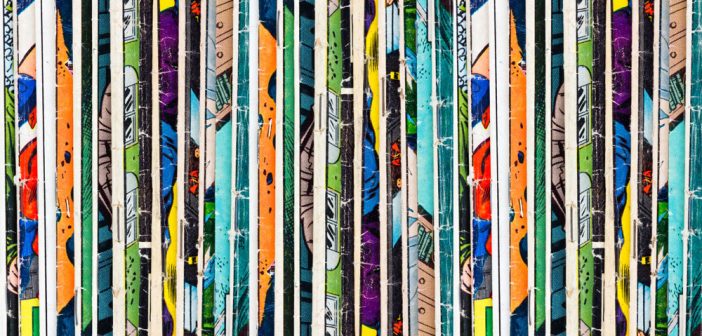Comic books collectors range from casual enthusiasts who simply enjoy collecting special issues to serious investors who have turned their collection into a business. Comic book trading can definitely be a profitable side venture, but there are a few key details you need to know before jumping in to either buying or selling.
Comic Book Stores
Before you can sell and make money, you need to buy some comic books if you don’t already have some. There are more than likely a handful of stores in your area where you can see the merchandise in person before deciding if you want to buy it. You are also likely to meet other enthusiasts there who may be willing to give you tips on what to look for, which editions are more desirable, and how to care for your comic books.
Garage Sales
You may be able to find some really valuable comic books in local garage sales. Keep in mind that for someone selling at a garage sale, the comic books were likely not a valued item in the house, and they may not have been stored properly. Seasoned comic book investors know to check them out rather thoroughly before buying. Another thing to watch for at a garage sale is that the seller may not know enough to accurately price the item. This can either work in your favor or against you, depending on the circumstances. An issue may be priced higher than it is truly worth just because it is in good condition or it is an older issue. Older doesn’t always mean more valuable and neither does being in good condition, but anyone that is not familiar with comic books could easily think that mistakenly.
Online
Online sources are great because it can seem like there is a limitless supply of different comic books. Multiple collectors in different areas of the country being pooled together in one location can offer a wide variety of choices. The most obvious thing to be aware of with an online website or source is that most of the collectors have the same ultimate goal as you do – to buy low and sell high. So finding great deals may be a little harder than at a garage sale or a local store.
Know a Good Price
Before you can make an offer on a comic book, you should know what a fair price for it is. Do some research and see what the issue typically sells for. Make sure to check multiple sales locations instead of a single source so you can have an idea of a fair price range. Knowing what you can reasonably expect to pay will save you from some sticker shock. It will also keep you from getting into a bidding war that ends up going higher than you expected it would. Knowing a fair value for the product you already have will also help you when selling. If you have a reasonable expectation for what an issue should sell for, you can avoid burning yourself by selling too low or pricing it too high, which will prevent it from selling quickly.
Know the Condition Grading Scale
Comic books are graded by a specific scale that determines their current condition. Obviously the higher on the grading scale a comic book rates, the higher it will be in value. Grading your issues accurately will help them sell to the right market.
• Mint refers to almost perfect condition. To fall in this category, a comic book should show no visible signs of wear and have nice flat spines. The ink should be clear and bright.
• Near Mint comic books have no corner or impact flaws and still have clear ink color, but some minor flaws are acceptable.
• Very fine condition refers to comic books that have a good visual appeal and show very little wear on the edges. The cover should be clean and free of any liquid spills, as well as maintain its bright ink.
• Fine comic books fall into a category that accepts some minor signs of being handled, but the book still remains in above average condition.
• Very good is a category you can expect to see some usage signs in such as creasing, but the overall visual appeal is not lost.
• Good condition refers to comic books that are still readable throughout the entire issue, but have some aesthetic flaws, such as scuffing or soiling on the inside pages. This condition should not be missing any pages.
• Fair condition refers to books that have all of the pages on the inside and most of the covers. The story should not be affected and should be fully legible.
• Poor condition means a book has just about no collectible value and has significant signs of wear. Comic books with stained or ripped pages would fall into this category.
Storing Your Comic Books
One of the first things that serious collectors look at before buying a comic book is how it is stored. All comic books should be stored in plastic bags and on a board to keep the book from bending, creasing, or becoming crumpled. Comic books should also be stored in cool, dry locations with limited light exposure to prevent the pages becoming warped or the ink from fading.
While comic books can be both a source of entertainment and profit, there is a lot of care and research that goes into them. Serious buyers and sellers should have a solid knowledge of what to look for in a prospective purchase, as well as how to fairly price issues for sale. As with any business adventure, experience will offer the most information and be the best teacher. Learning the terminology of the market and also the best way to advertise and describe your product will come from repeated purchases and sales. While it can seem like an intimidating circle to break into, if you start with an honest appreciation for comic books, the rest will come easily.








